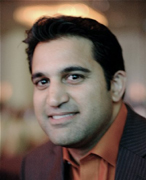Tell us a little bit about your organisation.
Asher Hasan: “Naya Jeevan is a not-for-profit, social enterprise that was founded in the US back in 2007. We are committed to rejuvenating the lives of low-income families throughout Pakistan, and ultimately the emerging world, by providing them with affordable access to quality, catastrophic healthcare. These low-income families include low-income (less than PKR 15,000 per month) workers in the corporate, academic, NGO and SME sectors as well as household staff (drivers, maids, guards, cooks, etc. and their families). Unfortunately, catastrophic medical expenses continue to be a major source of financial destitution and generational poverty for low-income families throughout Pakistan, even in 2010. Consequently, we have designed a health plan that gives our low-income members access to over 150, top-quality, private hospitals throughout Pakistan with annual coverage sufficient to cover cardiac bypass surgery. We also provide access to critical value-added services such as a 24/7 medical hotline, free annual medical exams and health screenings, referrals for subsidised, quality OPD services and complimentary ‘sehat’ and ‘hunar’ workshops that are oriented towards primary/preventive health or skill development. For more information, one can visit our website at http://www.njfk.org.”
In a recent talk, you stated that “compassionate capitalism will be the way of the future and is the only way that for-profit companies will be able to sustain themselves in developing markets”. Can you please elaborate on this?
AH: “Yes, the talk was given at the Asia Society Asian Business Leaders seminar in New York. The point I was trying to make was that absolute growth in consumer markets in emerging countries will only occur if all potential consumers are participating in the economy. This can only happen if we invest in the education of our socio-economically deprived population while keeping them healthy and productive. Therefore, it makes good business sense for MNCs and other sustainable entities to focus on the socio-economic empowerment of ordinary Pakistanis because that is where there future growth lies.”
Who are some of your key clients?
AH: “We are fortunate to have some of the most innovative and socially conscientious companies partnering with us, including Unilever, Deutsche Bank, Sanofi~Aventis, Avari & Beach Luxury Hotels and Kansai Paints. In addition, popular restaurants such as Espresso, Café Flo and Koel Café have enrolled their low-income staff while LACAS in Lahore is the first school in Pakistan to participate in our health plan. We hope that these pioneers in their respective industries will set a new benchmark for employee benefits and community empowerment.
We were recently happy to hear that Unilever has agreed to be the first large MNC in Pakistan to offer its employees the opportunity to enroll their domestic staff in our health plan through an automated payroll deduction system. We have also received very positive signals from Gillette/P&G, Citibank and Sanofi-Aventis in this regard. It will take exactly these kind of progressive corporate HR initiatives to catalyse a new form of CSR – what we refer to as not just ‘corporate’ but ‘collective’ social responsibility.”
What are your organisation’s recent initiatives?
AH: “Well, we recognised that quality outpatient healthcare services (OPD) are in short supply and desperately needed by low-income families and so we have embarked on a concerted effort to integrate OPD services provided by partner NGO organisations into our existing secondary/tertiary care health plan. NGOs such as LRBT (eye vision care), SINA (outpatient community clinics), Karwan-e-Hayat (psychiatric services), Ibteda (drug rehabilitation services) and AKSWB (healthcare in villages outside Hyderabad) are some of the organisations we are exploring synergies with.”
How can more companies get involved in your Global Ramadan Campaign?
AH: “For starters, companies can buy large blocks of Ramadan children’s calendars from us for PKR 1000 each. 100% of the funds raised will be used to provide health insurance for children studying in NGO schools. Ultimately, we would also like to cover the families of these children as well as the low-income staff teaching at these schools. The Ramadan children’s calendar is a beautifully designed calendar with a prayer or proverb hidden behind the 30 windows which are to be opened up, one day at a time, during the holy month. Companies that are working with existing NGOs (e.g. SOS, DIL, Zindagi Trust, HOPE, etc.) can also choose to adopt the health plan for an entire school. Companies can also encourage (perhaps through partial matching contributions) their employees to purchase these calendars as well. Restaurants like Espresso will be disseminating these calendars throughout their outlets and we hope that other high-end retailers will follow suit.”
It was recently announced that Naya Jeevan would be one of 20 commitments to be featured at the Clinton Global Initiative. What other partnerships have you established?
AH: “We’re fortunate to have been involved with some great organisations including the Draper Richards Foundation, Aman Foundation, ePlanet Ventures, ML Resources Social Vision and NYU Stern School of Business. One of our most enjoyable partnerships has been with TED. As a TED India fellow, I had the opportunity to give a TED talk in Mysore, India at TED India last November which was well received by our Indian neighbours. In addition, we have been awarded fellowships by Robert Wood Johnson Foundation, Cordes/Opportunity Collaboration and Skoll World Forum. I’m also a member of the Asia Society Task Force on Pakistan 20/20 Vision which is a broad-spectrum group of civil society stakeholders in the US and Pakistan who are committed to Pakistan’s development and success as an emerging nation.”




